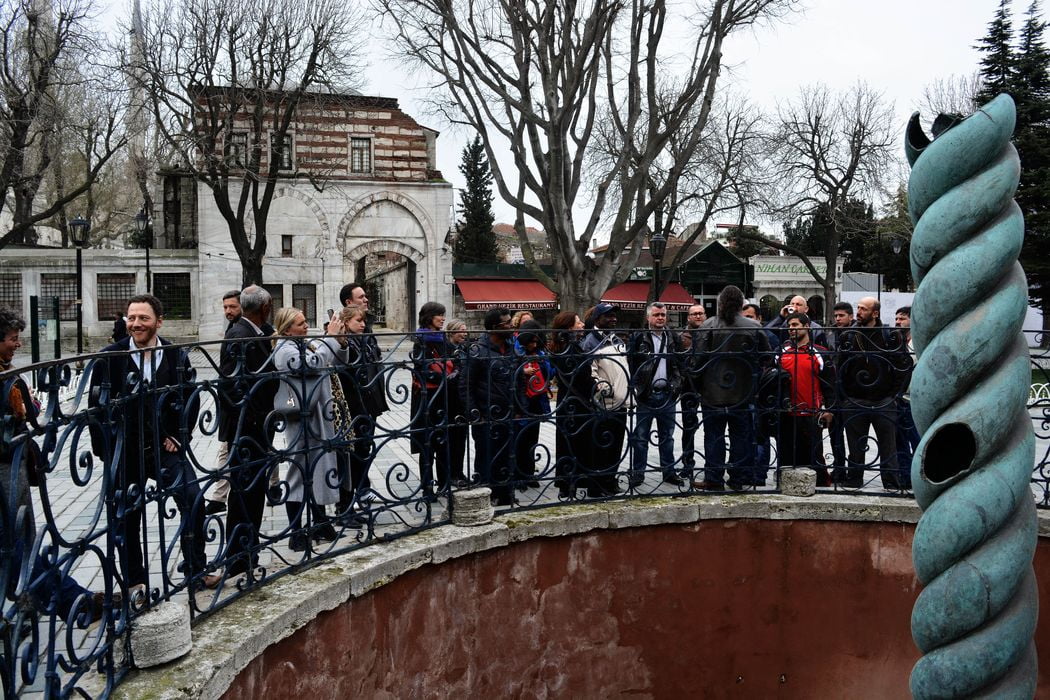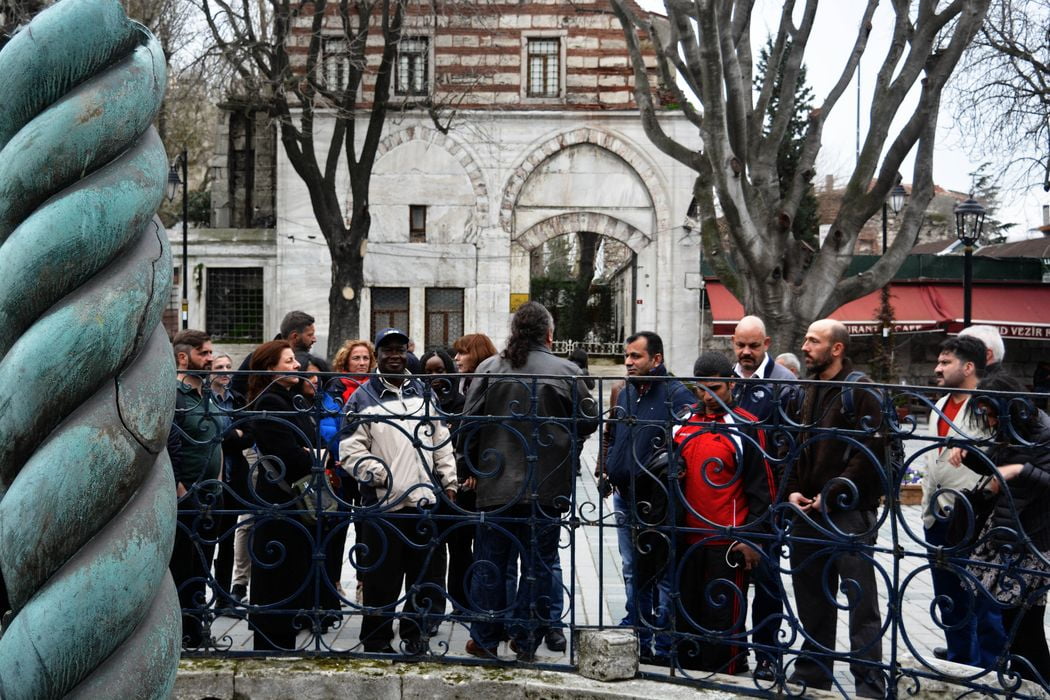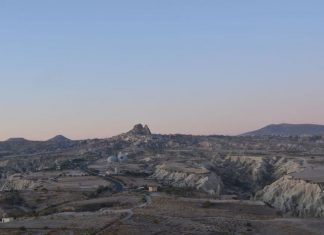He took my hand and said to the Greek (who knew the Arabic tongue), “Say to this Saracen (meaning Muslim), ‘I clasp the hand which has entered Jerusalem and the foot which has walked within the Dome of the Rock and the great church of the Holy Sepulchre and Bethlehem,`” and he laid his hand upon my feet and passed it over his face. I was astonished at their good opinion of one who, though not of their religion, had entered these places. Then he took my hand and as I walked with him asked me about Jerusalem and the Christians who were there, and questioned me at length.
I entered with him the sacred enclosure of the church which we have described above. When he approached the principal gate, a party of priests and monks came out to salute him, for he is one of their chief men in monasticism, and on seeing them he let go my hand. I said to him “I should like to enter the church with you.”
Then he said to the interpreter, “Say to him, ‘He who enters it must needs prostrate himself before the great cross, for this is a rule which the ancients laid down and which cannot be contravened.`” So I left him and he entered alone and I did not see him again.
Muslim scholar
After leaving the king I entered the bazaar of the scribes, where I was noticed by the judge, who sent one of his assistants to ask the Greek about me. On learning that I was a Muslim scholar he sent for me and I went up to him. He was an old man with a fine face and hair, wearing the black garments of a monk, and had about ten scribes in front of him writing.
He rose to meet me, his companions rising also, and [he] said, “You are the king’s guest and we are bound to honour you.” He then asked me about Jerusalem, Syria, and Egypt, and spoke with me for a long time. A great crowd gathered round him, and he said, “You must come to my house that I may entertain you.” After that I went away, but I did not see him again.
Read More about Ibn Battuta part 70








